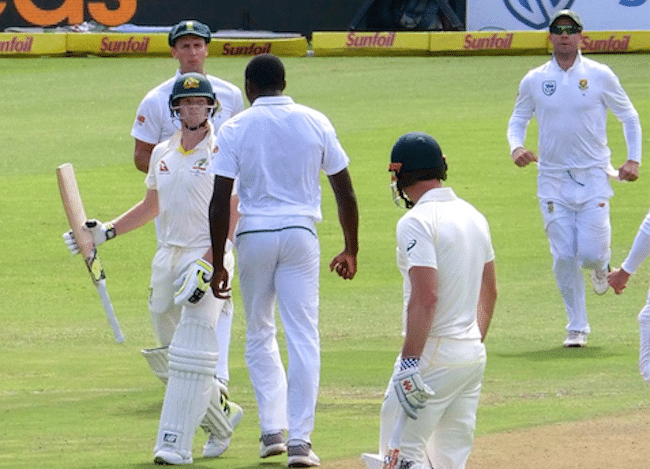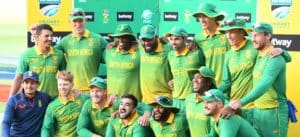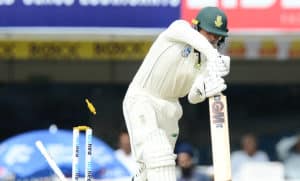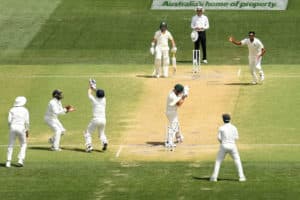Steve Smith says Kagiso Rabada’s successful appeal has set a precedent allowing for physical contact, which he may challenge.
The Australia captain also questioned why he was not asked for his version of events when Cricket South Africa took the judgment on Rabada’s appeal. Rabada had been given three demerit points, which would have banned him from two Tests, but the decision was overturned by a judicial commissioner.
‘The ICC have set the standard, haven’t they? There was clearly contact out in the middle,’ Smith said in Cape Town ahead of Thursday’s third Test.
‘But I certainly won’t be telling my bowlers to go out there, after you take a wicket, go and get in their space. I don’t think that is on.
‘I certainly think he bumped me a little bit harder than it actually looked on the footage. What’s the point of over-celebrating? And getting in the face of a batter, after you’ve already won the battle. But they’ve obviously decided what’s deliberate contact and what’s not, and apparently, it wasn’t.’
READ ALSO: Mark Salter’s column: Fire, fury and wasted energy
Since 2011, Australia has only once asked for a hearing to contest a sanction, ironically for physical contact between Mitchell Johnson and Ben Stokes when Jeff Crowe was also presiding as match referee, and chose to drop the charges against both players for their mid-pitch collision during the 2013 Adelaide Test.
However, Smith said the Rabada case had changed the landscape considerably, both in terms of allowing physical contact and opening up the possibility of further challenges.
‘You always want your best players available to play so maybe, particularly now that we know people can get off, that’s for sure. That’s a possibility in the future,’ Smith said. ‘If you see guys getting off, then perhaps guys will appeal a bit more in the future to try and get off certain things.’





